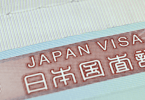Breaking into hotel rooms is all in a day’s work for Bill Stanton. Far from being a cat burglar, though, this former New York City cop has become a kind of Bob Vila of the security business. His Dateline and Today Show segments for NBC aim to alert ordinary citizens to security hazards. And, he contends, there are more than a few of those when you’re on the road. “Thieves love tourists,” he says.
Unfortunately, we sometimes make it easy for those with larcenous intent to take advantage of us, and even the most security-conscious hotel can be vulnerable to the dedicated thief. When one five-star New York hotel swore there was no way Stanton could get into a room that wasn’t his, for example, he took the bait. He strolled into the hotel in flip-flops, shorts and a T-shirt, with overnight bag in hand, and headed for the staircase, because “it’s not cost-effective for a hotel to put security cameras in the stairwell.” There he removed the T-shirt and flip-flops, threw on a generic white bathrobe and dumped a bottle of water over his head. Proceeding to a floor where there were cleaning staff at work, he went to a locked door and shook the knob. “Excuse me,” he said to one of the cleaners. “I’ve locked myself out. Can you let me in?” She did.
“The average thief is not going to go to that much trouble,” he admits. Instead, he says, thieves tend to be opportunistic, so it is in your interest not to make it easy for them to rip you off. His rule of thumb: “You should always be in a state of yellow alert. I don’t want people to be paranoid. I want them to be prepared.” Here are Stanton’s Top 10 security tips for travellers:
1. Start before you leave home
Make sure all your windows and doors are locked. Suspend newspaper subscriptions and don’t let it slip to the dry-cleaner, the cable guy and anyone else who delivers products or services to your home that you’ll be away for a week. Sometimes people who have access to your home sell that information: This is the alarm code, this is where they have artwork or jewellery. “Even if they don’t have a larcenous heart,” Stanton says, “you can’t vouch for everyone they will tell.”
2. Put a unique identifying tag on your luggage
“Ever go to the airport and see a bag with a sweatsock tied around the handle?” Stanton says. There’s method to the madness. Most baggage today is black. “People will pick up your luggage by accident and sometimes they will steal it,” he says. “Remember there was a time at the airports where you couldn’t get out unless you showed them your luggage tag? What happened to that?” The good news: A coloured or patterned bag, or one with a highly visible identifying tag, will help you quickly pick your luggage out from the bags surrounding it. Ditto for laptops: A brightly coloured sticker can prevent you from grabbing the wrong one at the security check.
3. Make use of your carry-on
“I put all of my most valuable things and at least one change of clothes in my carry-on,” Stanton says, “in case I lose my other luggage.”
4. Reserve your laptop screen for your eyes only
A quick glance over your shoulder when you’re using your laptop can reveal a wealth of information to a dedicated thief, including your name, address, sensitive data and even security codes. Invest in a privacy filter that blocks the screen to anyone not sitting directly in front of it. The cost: $75 at Staples. The ability to protect your private information: priceless.
5. Become a hotel low-talker
Seinfeld may have mocked the low-talker, but when you’re checking into a hotel, speaking quietly is a plus. Stanton has broken into hotel rooms by standing next to a guest when they’re checking in. He listens for their name and room number, then returns to the desk 10 minutes later. “I’m Maria’s boyfriend,” he’ll say. “Maria Cruz. I left my wallet in the room. Would you mind if I went and got it?” Often, the security guard will walk you there, but you say before you arrive, “She has a blue Samsonite bag.” Sure enough, she does, a fact you’re well aware of since you watched her check in. “I hit the security guard with $20,” Stanton says, “and I now have access to your room.”
6. Cut up your room key
Anyone can run it through a device and retrieve all of the information that you gave the hotel – your name and address, licence and credit-card numbers – to steal your identity. “I don’t even give it back,” Stanton says. “I break it in half and dispose of each half in a different spot.”
7. Use the room safe
Even if hotel employees are beyond reproach, you don’t want to make it easy for anyone to dart in and grab your valuables. Cleaning staff frequently leave room doors wide open, sometimes when they’re not even in the room. “I’ve walked in, as a test, acting as if it were my room,” Stanton says. “All you have to say is, ‘Can you excuse me for five minutes? And they leave.’ ”
8. Look for the exit
Whenever you’re in a building, whether a hotel or conference centre, make a mental note of the exit locations. “Don’t be paranoid, be prepared.”
9. Keep your cash close
“Pickpockets operate all over the world and they thrive on tourists,” Stanton says. You may want to wear a money-belt under your clothes, or at the very least, keep your wallet in your front pocket. As for women, wear your purse over your shoulder and securely tucked under one arm. Not much is going to protect you from a determined thief: In fact, Stanton had a pickpocket on his show who “undid the knot and took a tie right off this guy’s neck without him knowing. You want to minimize the opportunity.”
10. If you wouldn’t do it at home, don’t do it in “paradise”
You can’t assume that just because you’re on vacation, the criminals are, too. So don’t get bombed and then leave a bar with someone you don’t know. Don’t accept a drink unless you’ve watched the chain of custody from the bartender to you. Implement a buddy system. And by all means check the crime rate of a place before you go.
Googling “Vancouver, high crime neighbourhoods” reveals that the city has one of the highest property-crime rates in North America, and you probably don’t want to stroll through the Downtown Eastside, among other things. When in doubt, ask the concierge about safety issues. Some really nice hotels are located in questionable neighbourhoods. That doesn’t mean you have to cower in your room, but at least grab a cab when you go out after dark.
mbapost.com






















